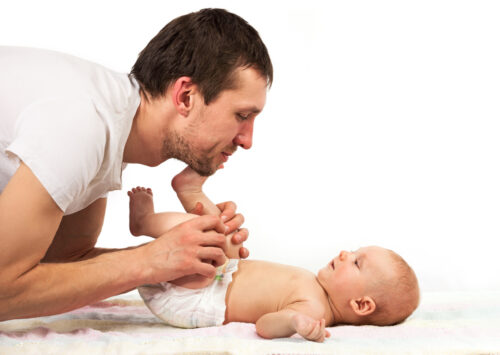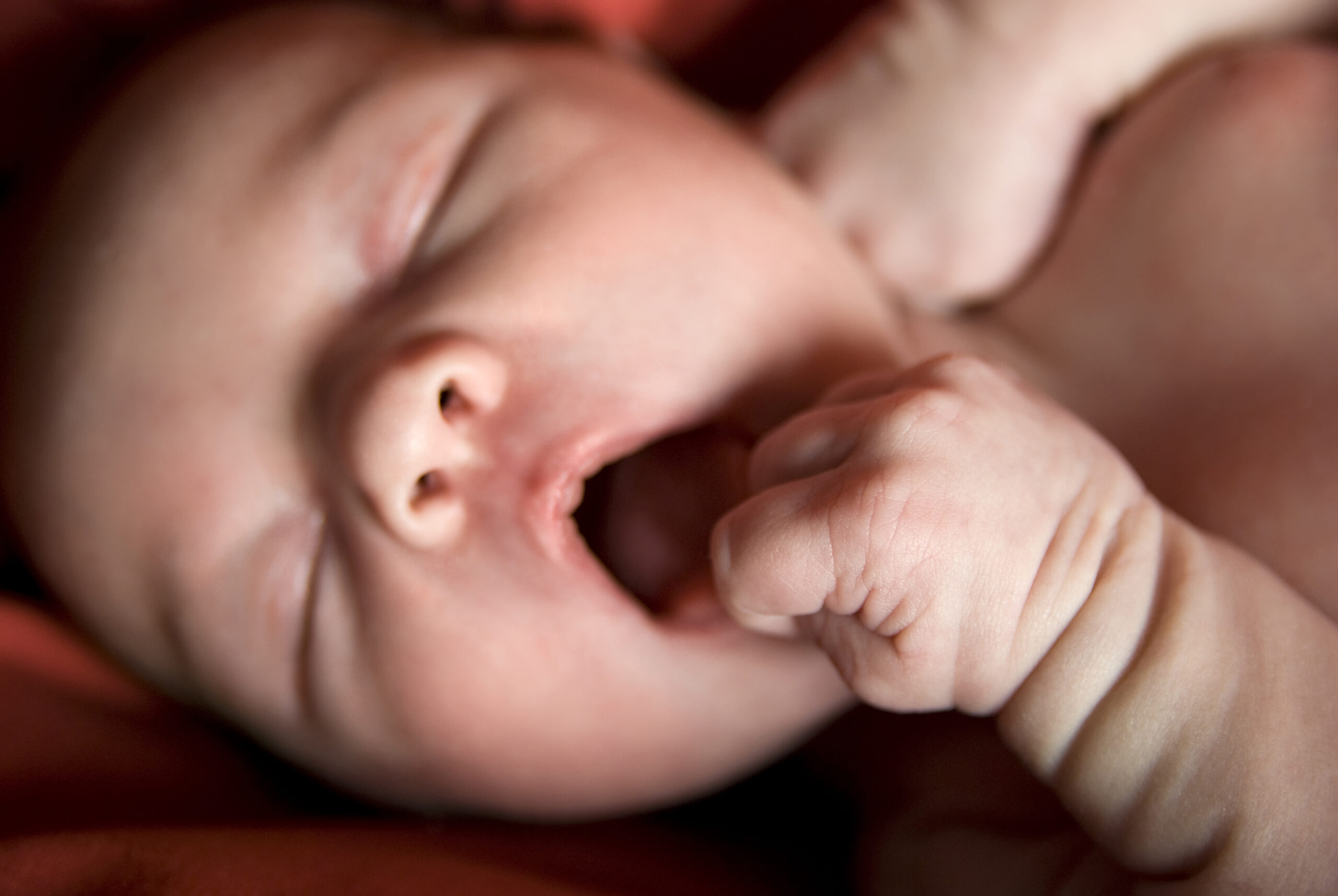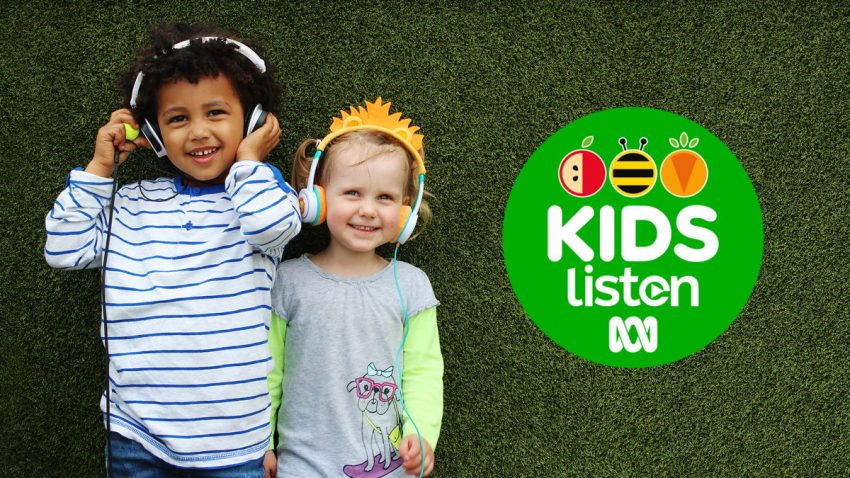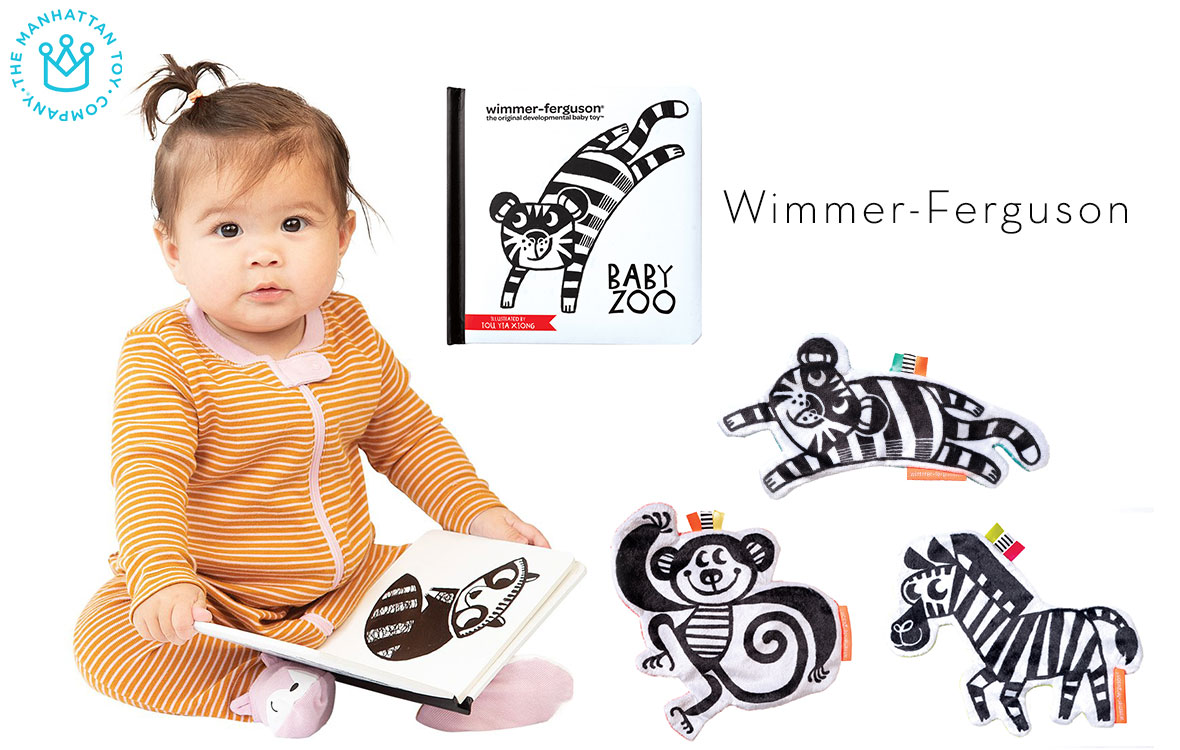New parents are often amazed to learn more about their newborn baby, what they enjoy, how far they can see and the reflexes they are born with to keep them alive!
The Sense of Touch
Newborn’s love being touched gently by their parents, they love skin to skin contact which happens many times a day of breastfeeding. But even bottle-fed babies can have this skin to skin and both parents can do this.
Research shows that premature babies benefit from skin to skin contact with their parents and are more settled and grow and develop faster, this is called ‘kangaroo care’. All babies can benefit from this, and it also helps to develop a closer bond.
You can cuddle your baby skin to skin at any time, try using a simple carry pouch that allows the baby directly against the parent or even shower or bath with your baby. You will find other opportunities for skin-to-skin contact.
Baby Massage
Touch and physical contact is enjoyed by newborns and gentle baby massage is a wonderful activity to share with your baby. You can take a class to learn the techniques or even just try it yourself. If your baby enjoys it then it is fine. You can try using some baby massage oil as this can enhance the feelings of pleasure, test this on a small area first to make sure your baby does not react to it. You may find this helps your baby get drowsy and ready for sleep.

How Far Can Newborn Babies See?
At birth, your baby can see you well if cradled in your arms (20-40cm away) anything further away will be blurred. So, when they are breastfeeding, they can see you very well and given that they spend a lot of time in this position it is good to know. This gradually improves and extends over many months.
What Do Newborns Like to Look At?
They love looking at their parents faces the most. If you are smiling or talking to them, they love that even more. Your face is your baby’s first toy!
Newborns have a preference for high contrast If showing books and other pictures, paintings newborn babies love high contrast such as black and white with some pops of colour. These are easy for them to see, and they seem to enjoy looking at them. There are many books aimed at young babies that suit well.
What Can Newborns Hear?
Newborn babies already know their parents’ voices as they’ve been listening to you throughout the later months of pregnancy, and they will recognise these as comforting.
Newborns will often turn their head toward a sound, a parent’s voice or a bell ringing, it is a delayed response, but they will search for the source of the noise. This is always reassuring to parents as they know that they can hear.
What Do Newborns Like to Listen To?
Newborns favour their own parent’s voices over all other sounds. They prefer high pitched voices, and most adults automatically begin to speak this way with their baby. They don’t like loud or sudden sounds.
Your baby will love to hear you sing to them, even if you’re not a good singer, they won’t mind, try it you may be surprised. Even nursery rhymes are enjoyed.
Newborn Reflexes:
Babies are born with many primitive reflexes which help to protect them and keep them alive.
Searching/rooting reflex
If a young baby’s cheek is touched, they will open their mouth and start to look around for the nipple to feed, even if they are not hungry.
Sucking reflex
When the roof of a young baby’s mouth is touched, they will begin to suck.
Palmer grasp reflex
If you put your finger into the palm of a young baby, they will grasp hold quite tightly.

The startle or moro reflex
The startle reflex occurs when a newborn baby has a fright such as hearing a loud sound or feeling like they are falling, their arms will fly outwards, hands open, arch their back then arms come back in like an embrace. This reflex usually lasts until around 4-6 months of age.
Stepping reflex
When standing a newborn baby up, fully supported and place their feet on the floor or surface they will begin to step with one leg then the other, even though they are not able to hold themselves up yet.
Babinski reflex
If you stroke your baby’s foot from heel to toe, their toes will push upwards, and their foot will turn inwards.
These primitive reflexes will gradually reduce and be replaced by more voluntary responses over the coming months.
Your health professionals will check these reflexes after birth and in the early months of life.
We know that you are your baby’s expert, no one knows them like you do. If you have any concerns with your baby, please talk to your health care professionals, your GP, midwife or maternal and child health nurse.
Enjoy these special early weeks and months with your baby, although it doesn’t feel like it at the time, this time does pass quickly.









